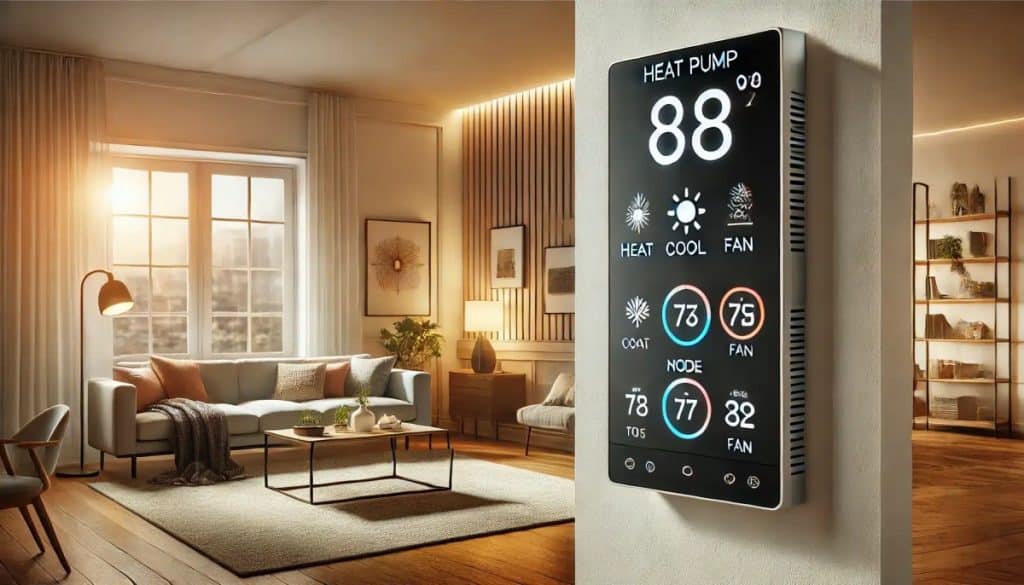Heat pumps are among the most efficient solutions for heating and cooling homes. Their ability to transfer heat instead of generating it makes them cost-effective and eco-friendly. However, to get the most out of a heat pump, proper maintenance and strategic usage are essential. This article highlights ten practical ways homeowners can enhance the performance of their heat pump systems while ensuring comfort and energy efficiency throughout the year.
1. Schedule Regular Maintenance
A well-maintained heat pump operates more efficiently and lasts longer. Annual inspections by a professional HVAC company, such as Foundry Heat Pumps, ensure that your system functions at peak performance. Regular maintenance includes checking refrigerant levels, cleaning coils, and tightening electrical connections. These routine tasks prevent minor issues from escalating into costly repairs.
2. Clean or Replace Air Filters
Dirty air filters restrict airflow, forcing the heat pump to work harder to heat or cool your home. Over time, this increased strain can reduce efficiency and shorten the system’s lifespan. It’s recommended to check filters monthly and clean or replace them as needed, especially during periods of heavy usage.
3. Optimize Thermostat Settings
Using your heat pump in tandem with a smart or programmable thermostat can significantly improve efficiency. In winter, set the thermostat to around 68°F when at home and lower it when you’re asleep or away. In summer, aim for 78°F. Avoid frequent adjustments, as they can cause the system to cycle unnecessarily, reducing efficiency.
4. Keep the Outdoor Unit Clear
The outdoor unit of your heat pump requires proper airflow to function efficiently. Overgrown vegetation, leaves, dirt, and debris can obstruct the unit, causing it to overheat or underperform. Regularly inspect the area around the unit, maintaining at least two feet of clearance on all sides. During winter, ensure that snow and ice do not accumulate on or around the unit.
5. Seal Ductwork
For homes with ducted heat pump systems, sealing and insulating ductwork is crucial for efficiency. Leaky ducts can result in significant energy loss, as heated or cooled air escapes before reaching its destination. An HVAC professional can inspect and seal your ductwork, ensuring that air is distributed evenly throughout your home.
6. Insulate Your Home
Proper insulation minimizes heat loss in the winter and heat gain in the summer, reducing the workload on your heat pump. Check your home’s insulation in key areas like the attic, walls, and windows. Upgrading to energy-efficient windows or adding weatherstripping to doors can further improve insulation.
7. Use Ceiling Fans Strategically
Ceiling fans can complement your heat pump by improving air circulation. In the winter, set fans to rotate clockwise at a low speed to push warm air down. In the summer, reverse the direction to create a cooling breeze. This reduces the need for your heat pump to work harder, saving energy and enhancing comfort.
8. Avoid Overusing the Emergency Heat Setting
Most heat pumps come with an emergency heat setting for extremely cold conditions. However, this mode relies on electric resistance heating, which is less efficient and more expensive to operate. Use it only when necessary, such as during a system malfunction or in subfreezing temperatures.
9. Monitor Refrigerant Levels
Refrigerant is essential for the heat transfer process that powers your heat pump. Low refrigerant levels can hinder performance and lead to higher energy bills. During professional maintenance visits, technicians will check refrigerant levels and address any leaks to ensure optimal operation.
10. Invest in a Zoning System
A zoning system divides your home into separate areas or zones, each with its own thermostat. This setup allows you to heat or cool only the areas you’re using, reducing energy waste. Zoning is particularly useful for larger homes or spaces with varying heating and cooling needs.
Why These Practices Matter
Implementing these strategies not only improves your heat pump’s efficiency but also extends its lifespan and reduces your energy costs. A well-maintained heat pump can last 15-20 years, providing consistent comfort and savings over time.
The Environmental Impact
Heat pumps, especially electric heat pumps and air source heat pumps, are already environmentally friendly options compared to traditional HVAC systems. By optimizing their performance, you further reduce your carbon footprint. Efficient systems consume less electricity, leading to fewer greenhouse gas emissions, particularly when paired with renewable energy sources.
The Role of Professional Installation and Maintenance
Proper installation and maintenance are key to maximizing heat pump performance. Working with experienced professionals like Foundry Heat Pumps ensures that your system is correctly sized, installed, and maintained for optimal efficiency.
Conclusion
Heat pumps are a reliable and efficient choice for year-round climate control, but their performance depends on how they’re used and maintained. By adopting these ten strategies, homeowners can enjoy the full benefits of their heat pump system, from lower energy bills to a more comfortable home.
Whether you’re installing a new system or maintaining an existing one, partnering with a trusted HVAC company is essential. With expert guidance and regular care, your heat pump can provide sustainable, cost-effective heating and cooling for many years to come.

